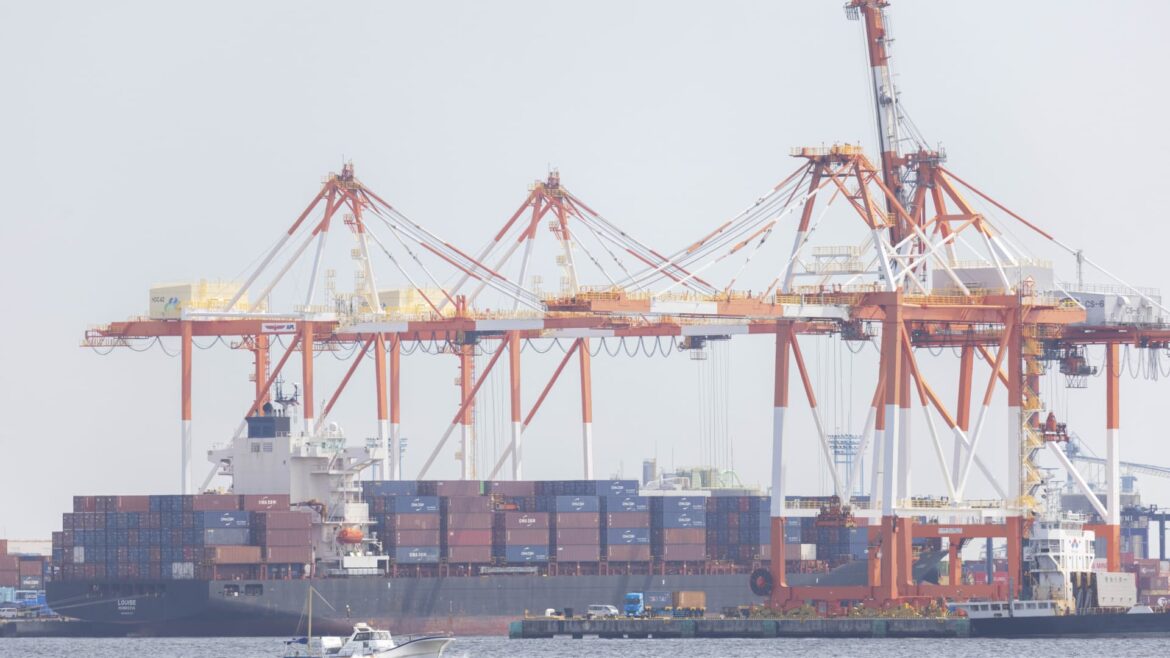YOKOHAMA, KANAGAWA, JAPAN – 2025/08/28: A loaded container ship is docked inside Tokyo Bay.
Sopa Images | Lightrocket | Getty Images
Japanese exports in September snapped four months of declines, climbing 4.2% year on year, as shipments to Asia saw robust growth, partially offsetting the drop in exports to the U.S.
Exports, however, missed Reuters’ median estimates of a 4.6% rise.
Shipments to Asia climbed 9.2% compared to the same period last year, boosted by a 5.8% jump in exports to mainland China, Japan’s largest trading partner rose. Exports to the U.S., Japan’s second largest trading partner, dropped 13.3%.
Semiconductor exports from Japan were one of the main drivers of the overall growth in September, rising 12.6% in terms of value year on year.
Japan’s exports had fallen into negative territory as the country grappled with U.S. tariffs, with its shipments of automobiles to the world’s largest economy taking a huge hit. Auto shipments to the U.S. dropped 24.2% in September in terms of value, slightly less compared to the 28.4% drop in August.
Tokyo in July clinched a trade deal with Washington, bringing down tariffs on its exports to the U.S. to 15% from the 25% initially proposed by President Donald Trump. The 15% tariffs took effect on Aug. 7.
The world’s fourth-largest economy saw imports increase 3.3% year on year, reversing course from the 5.2% decline in August and beating the 0.6% growth expected by the Reuters poll.
The data comes a day after the country got its first female prime minister in Sanae Takaichi, after months of political turmoil following electoral losses of the ruling Liberal Democratic Party under former Prime Minister Shigeru Ishiba.
Takaichi’s stance of a loose momentary policy and massive fiscal stimulus is likely to weaken the yen, making Japanese goods more competitive, benefiting exporters — heavyweights on the benchmark Nikkei 225 that hit a record high on Tuesday.
Markets have priced in the so-called “Takaichi trade” since she took the helm of the LDP in September, which has seen the Nikkei rise to record highs and the yen weakening past the 150 mark.
The country’s economy has held up better than expected, with the second-quarter GDP being revised upward to 0.5% quarter on quarter from 0.3% estimated initially — analysts in a Reuters poll had had estimated 0.1% growth.


AloJapan.com